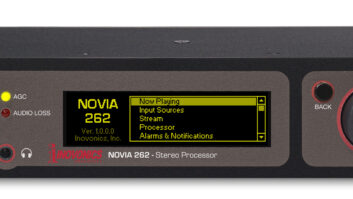Responding to Bob Meister’s letter (“Genset reset rethink,” Aug. 4 issue):
I couldn’t agree more with Bob on this matter! Safety should always precede convenience, particularly where electrical power is concerned.
There had to be a valid reason for the generator fault in the original situation described by John Bisset. Merely resetting it remotely without knowing the cause is bad practice.
The new transmitters I installed at my two (now-gone) stations featured automatic restarts — first two faults would pause then reapply HV, while a third would shut off and inhibit it. This was essential to protect the $10,000–$15,000 IOT finals from damage.
I declined to wire the transmitters’ fault-reset inputs to our remote controls in fear that a less-experienced MC op might destroy the finals or other expensive parts by repeated resets.
If you have spare status inputs on your remote, look into adding indicators that could warn you of impending problems and help you resolve little matters before they grow, or provide additional evidence that may help you decide between a simple “reset” visit and a major repair effort.
[Visit the Reader’s Forum for More Letters and Comments]
Also useful: temperature and light sensors; door switches; and fluid-detectors, which are easy to install and provide inexpensive insurance. Example: A simple “homebrew” pair of opto-isolators added to my Kohler transfer-switch alarm panel would confirm that all was well and whether we were on utility or generator power.
A personal note on safety: I’m truly grateful to have a touch of OCD. It has helped keep me (and others) alive when working anywhere near power.
Years ago, I was reunited with an old UHF TV transmitter that had seen better days. It featured a pair of doors that opened in front of a high-power Klystron (only 32 kV connections atop it!) along with various “deficiencies” like uncovered AC relays in another door and a “failed-shorted” interlock switch in yet other. A consulting engineer had come close to being electrocuted there months earlier, partly because the station engineer also misinterpreted his directions.
My mind insists on “pointing and saying” before I do anything potentially dangerous. Remember: You have many opportunities to get it right, but you may have only one chance to get it wrong.
Cheers and stay safe!
Michael Shovan, CBTE
fd&t technical services
Newburgh, N.Y.
Radio World invites industry-oriented commentaries and responses. Send to Radio World.










